- Home
- Suzanne Collins
The Hunger Games Trilogy Page 5
The Hunger Games Trilogy Read online
Page 5
Now I was going to die without that ever being set right. I thought of how I had yelled at her today in the Justice Building. I had told her I loved her, too, though. So maybe it would all balance out.
For a while I stand staring out the train window, wishing I could open it again, but unsure of what would happen at such high speed. In the distance, I see the lights of another district. 7? 10? I don’t know. I think about the people in their houses, settling in for bed. I imagine my home, with its shutters drawn tight. What are they doing now, my mother and Prim? Were they able to eat supper? The fish stew and the strawberries? Or did it lie untouched on their plates? Did they watch the recap of the day’s events on the battered old TV that sits on the table against the wall? Surely, there were more tears. Is my mother holding up, being strong for Prim? Or has she already started to slip away, leaving the weight of the world on my sister’s fragile shoulders?
Prim will undoubtedly sleep with my mother tonight. The thought of that scruffy old Buttercup posting himself on the bed to watch over Prim comforts me. If she cries, he will nose his way into her arms and curl up there until she calms down and falls asleep. I’m so glad I didn’t drown him.
Imagining my home makes me ache with loneliness. This day has been endless. Could Gale and I have been eating blackberries only this morning? It seems like a lifetime ago. Like a long dream that deteriorated into a nightmare. Maybe, if I go to sleep, I will wake up back in District 12, where I belong.
Probably the drawers hold any number of nightgowns, but I just strip off my shirt and pants and climb into bed in my underwear. The sheets are made of soft, silky fabric. A thick fluffy comforter gives immediate warmth.
If I’m going to cry, now is the time to do it. By morning, I’ll be able to wash the damage done by the tears from my face. But no tears come. I’m too tired or too numb to cry. The only thing I feel is a desire to be somewhere else. So I let the train rock me into oblivion.
Gray light is leaking through the curtains when the rapping rouses me. I hear Effie Trinket’s voice, calling me to rise. “Up, up, up! It’s going to be a big, big, big day!” I try and imagine, for a moment, what it must be like inside that woman’s head. What thoughts fill her waking hours? What dreams come to her at night? I have no idea.
I put the green outfit back on since it’s not really dirty, just slightly crumpled from spending the night on the floor. My fingers trace the circle around the little gold mockingjay and I think of the woods, and of my father, and of my mother and Prim waking up, having to get on with things. I slept in the elaborate braided hair my mother did for the reaping and it doesn’t look too bad, so I just leave it up. It doesn’t matter. We can’t be far from the Capitol now. And once we reach the city, my stylist will dictate my look for the opening ceremonies tonight anyway. I just hope I get one who doesn’t think nudity is the last word in fashion.
As I enter the dining car, Effie Trinket brushes by me with a cup of black coffee. She’s muttering obscenities under her breath. Haymitch, his face puffy and red from the previous day’s indulgences, is chuckling. Peeta holds a roll and looks somewhat embarrassed.
“Sit down! Sit down!” says Haymitch, waving me over. The moment I slide into my chair I’m served an enormous platter of food. Eggs, ham, piles of fried potatoes. A tureen of fruit sits in ice to keep it chilled. The basket of rolls they set before me would keep my family going for a week. There’s an elegant glass of orange juice. At least, I think it’s orange juice. I’ve only even tasted an orange once, at New Year’s when my father bought one as a special treat. A cup of coffee. My mother adores coffee, which we could almost never afford, but it only tastes bitter and thin to me. A rich brown cup of something I’ve never seen.
“They call it hot chocolate,” says Peeta. “It’s good.”
I take a sip of the hot, sweet, creamy liquid and a shudder runs through me. Even though the rest of the meal beckons, I ignore it until I’ve drained my cup. Then I stuff down every mouthful I can hold, which is a substantial amount, being careful to not overdo it on the richest stuff. One time, my mother told me that I always eat like I’ll never see food again. And I said, “I won’t unless I bring it home.” That shut her up.
When my stomach feels like it’s about to split open, I lean back and take in my breakfast companions. Peeta is still eating, breaking off bits of roll and dipping them in hot chocolate. Haymitch hasn’t paid much attention to his platter, but he’s knocking back a glass of red juice that he keeps thinning with a clear liquid from a bottle. Judging by the fumes, it’s some kind of spirit. I don’t know Haymitch, but I’ve seen him often enough in the Hob, tossing handfuls of money on the counter of the woman who sells white liquor. He’ll be incoherent by the time we reach the Capitol.
I realize I detest Haymitch. No wonder the District 12 tributes never stand a chance. It isn’t just that we’ve been underfed and lack training. Some of our tributes have still been strong enough to make a go of it. But we rarely get sponsors and he’s a big part of the reason why. The rich people who back tributes—either because they’re betting on them or simply for the bragging rights of picking a winner—expect someone classier than Haymitch to deal with.
“So, you’re supposed to give us advice,” I say to Haymitch.
“Here’s some advice. Stay alive,” says Haymitch, and then bursts out laughing. I exchange a look with Peeta before I remember I’m having nothing more to do with him. I’m surprised to see the hardness in his eyes. He generally seems so mild.
“That’s very funny,” says Peeta. Suddenly he lashes out at the glass in Haymitch’s hand. It shatters on the floor, sending the bloodred liquid running toward the back of the train. “Only not to us.”
Haymitch considers this a moment, then punches Peeta in the jaw, knocking him from his chair. When he turns back to reach for the spirits, I drive my knife into the table between his hand and the bottle, barely missing his fingers. I brace myself to deflect his hit, but it doesn’t come. Instead he sits back and squints at us.
“Well, what’s this?” says Haymitch. “Did I actually get a pair of fighters this year?”
Peeta rises from the floor and scoops up a handful of ice from under the fruit tureen. He starts to raise it to the red mark on his jaw.
“No,” says Haymitch, stopping him. “Let the bruise show. The audience will think you’ve mixed it up with another tribute before you’ve even made it to the arena.”
“That’s against the rules,” says Peeta.
“Only if they catch you. That bruise will say you fought, you weren’t caught, even better,” says Haymitch. He turns to me. “Can you hit anything with that knife besides a table?”
The bow and arrow is my weapon. But I’ve spent a fair amount of time throwing knives as well. Sometimes, if I’ve wounded an animal with an arrow, it’s better to get a knife into it, too, before I approach it. I realize that if I want Haymitch’s attention, this is my moment to make an impression. I yank the knife out of the table, get a grip on the blade, and then throw it into the wall across the room. I was actually just hoping to get a good solid stick, but it lodges in the seam between two panels, making me look a lot better than I am.
“Stand over here. Both of you,” says Haymitch, nodding to the middle of the room. We obey and he circles us, prodding us like animals at times, checking our muscles, examining our faces. “Well, you’re not entirely hopeless. Seem fit. And once the stylists get hold of you, you’ll be attractive enough.”
Peeta and I don’t question this. The Hunger Games aren’t a beauty contest, but the best-looking tributes always seem to pull more sponsors.
“All right, I’ll make a deal with you. You don’t interfere with my drinking, and I’ll stay sober enough to help you,” says Haymitch. “But you have to do exactly what I say.”
It’s not much of a deal but still a giant step forward from ten minutes ago when we had no guide at all.
“Fine,” says Peeta.
“So help us,”
I say. “When we get to the arena, what’s the best strategy at the Cornucopia for someone—”
“One thing at a time. In a few minutes, we’ll be pulling into the station. You’ll be put in the hands of your stylists. You’re not going to like what they do to you. But no matter what it is, don’t resist,” says Haymitch.
“But—” I begin.
“No buts. Don’t resist,” says Haymitch. He takes the bottle of spirits from the table and leaves the car. As the door swings shut behind him, the car goes dark. There are still a few lights inside, but outside it’s as if night has fallen again. I realize we must be in the tunnel that runs up through the mountains into the Capitol. The mountains form a natural barrier between the Capitol and the eastern districts. It is almost impossible to enter from the east except through the tunnels. This geographical advantage was a major factor in the districts losing the war that led to my being a tribute today. Since the rebels had to scale the mountains, they were easy targets for the Capitol’s air forces.
Peeta Mellark and I stand in silence as the train speeds along. The tunnel goes on and on and I think of the tons of rock separating me from the sky, and my chest tightens. I hate being encased in stone this way. It reminds me of the mines and my father, trapped, unable to reach sunlight, buried forever in the darkness.
The train finally begins to slow and suddenly bright light floods the compartment. We can’t help it. Both Peeta and I run to the window to see what we’ve only seen on television, the Capitol, the ruling city of Panem. The cameras haven’t lied about its grandeur. If anything, they have not quite captured the magnificence of the glistening buildings in a rainbow of hues that tower into the air, the shiny cars that roll down the wide paved streets, the oddly dressed people with bizarre hair and painted faces who have never missed a meal. All the colors seem artificial, the pinks too deep, the greens too bright, the yellows painful to the eyes, like the flat round disks of hard candy we can never afford to buy at the tiny sweet shop in District 12.
The people begin to point at us eagerly as they recognize a tribute train rolling into the city. I step away from the window, sickened by their excitement, knowing they can’t wait to watch us die. But Peeta holds his ground, actually waving and smiling at the gawking crowd. He only stops when the train pulls into the station, blocking us from their view.
He sees me staring at him and shrugs. “Who knows?” he says. “One of them may be rich.”
I have misjudged him. I think of his actions since the reaping began. The friendly squeeze of my hand. His father showing up with the cookies and promising to feed Prim…did Peeta put him up to that? His tears at the station. Volunteering to wash Haymitch but then challenging him this morning when apparently the nice-guy approach had failed. And now the waving at the window, already trying to win the crowd.
All of the pieces are still fitting together, but I sense he has a plan forming. He hasn’t accepted his death. He is already fighting hard to stay alive. Which also means that kind Peeta Mellark, the boy who gave me the bread, is fighting hard to kill me.
5
R-i-i-i-p! I grit my teeth as Venia, a woman with aqua hair and gold tattoos above her eyebrows, yanks a strip of fabric from my leg, tearing out the hair beneath it. “Sorry!” she pipes in her silly Capitol accent. “You’re just so hairy!”
Why do these people speak in such a high pitch? Why do their jaws barely open when they talk? Why do the ends of their sentences go up as if they’re asking a question? Odd vowels, clipped words, and always a hiss on the letter s…no wonder it’s impossible not to mimic them.
Venia makes what’s supposed to be a sympathetic face. “Good news, though. This is the last one. Ready?” I get a grip on the edges of the table I’m seated on and nod. The final swathe of my leg hair is uprooted in a painful jerk.
I’ve been in the Remake Center for more than three hours and I still haven’t met my stylist. Apparently he has no interest in seeing me until Venia and the other members of my prep team have addressed some obvious problems. This has included scrubbing down my body with a gritty foam that has removed not only dirt but at least three layers of skin, turning my nails into uniform shapes, and primarily, ridding my body of hair. My legs, arms, torso, underarms, and parts of my eyebrows have been stripped of the stuff, leaving me like a plucked bird, ready for roasting. I don’t like it. My skin feels sore and tingling and intensely vulnerable. But I have kept my side of the bargain with Haymitch, and no objection has crossed my lips.
“You’re doing very well,” says some guy named Flavius. He gives his orange corkscrew locks a shake and applies a fresh coat of purple lipstick to his mouth. “If there’s one thing we can’t stand, it’s a whiner. Grease her down!”
Venia and Octavia, a plump woman whose entire body has been dyed a pale shade of pea green, rub me down with a lotion that first stings but then soothes my raw skin. Then they pull me from the table, removing the thin robe I’ve been allowed to wear off and on. I stand there, completely naked, as the three circle me, wielding tweezers to remove any last bits of hair. I know I should be embarrassed, but they’re so unlike people that I’m no more self-conscious than if a trio of oddly colored birds were pecking around my feet.
The three step back and admire their work. “Excellent! You almost look like a human being now!” says Flavius, and they all laugh.
I force my lips up into a smile to show how grateful I am. “Thank you,” I say sweetly. “We don’t have much cause to look nice in District Twelve.”
This wins them over completely. “Of course, you don’t, you poor darling!” says Octavia clasping her hands together in distress for me.
“But don’t worry,” says Venia. “By the time Cinna is through with you, you’re going to be absolutely gorgeous!”
“We promise! You know, now that we’ve gotten rid of all the hair and filth, you’re not horrible at all!” says Flavius encouragingly. “Let’s call Cinna!”
They dart out of the room. It’s hard to hate my prep team. They’re such total idiots. And yet, in an odd way, I know they’re sincerely trying to help me.
I look at the cold white walls and floor and resist the impulse to retrieve my robe. But this Cinna, my stylist, will surely make me remove it at once. Instead my hands go to my hairdo, the one area of my body my prep team had been told to leave alone. My fingers stroke the silky braids my mother so carefully arranged. My mother. I left her blue dress and shoes on the floor of my train car, never thinking about retrieving them, of trying to hold on to a piece of her, of home. Now I wish I had.
The door opens and a young man who must be Cinna enters. I’m taken aback by how normal he looks. Most of the stylists they interview on television are so dyed, stenciled, and surgically altered they’re grotesque. But Cinna’s close-cropped hair appears to be its natural shade of brown. He’s in a simple black shirt and pants. The only concession to self-alteration seems to be metallic gold eyeliner that has been applied with a light hand. It brings out the flecks of gold in his green eyes. And, despite my disgust with the Capitol and their hideous fashions, I can’t help thinking how attractive it looks.
“Hello, Katniss. I’m Cinna, your stylist,” he says in a quiet voice somewhat lacking in the Capitol’s affectations.
“Hello,” I venture cautiously.
“Just give me a moment, all right?” he asks. He walks around my naked body, not touching me, but taking in every inch of it with his eyes. I resist the impulse to cross my arms over my chest. “Who did your hair?”
“My mother,” I say.
“It’s beautiful. Classic really. And in almost perfect balance with your profile. She has very clever fingers,” he says.
I had expected someone flamboyant, someone older trying desperately to look young, someone who viewed me as a piece of meat to be prepared for a platter. Cinna has met none of these expectations.
“You’re new, aren’t you? I don’t think I’ve seen you before,” I say. Most of the stylists are famili
ar, constants in the ever-changing pool of tributes. Some have been around my whole life.
“Yes, this is my first year in the Games,” says Cinna.
“So they gave you District Twelve,” I say. Newcomers generally end up with us, the least desirable district.
“I asked for District Twelve,” he says without further explanation. “Why don’t you put on your robe and we’ll have a chat.”
Pulling on my robe, I follow him through a door into a sitting room. Two red couches face off over a low table. Three walls are blank, the fourth is entirely glass, providing a window to the city. I can see by the light that it must be around noon, although the sunny sky has turned overcast. Cinna invites me to sit on one of the couches and takes his place across from me. He presses a button on the side of the table. The top splits and from below rises a second tabletop that holds our lunch. Chicken and chunks of oranges cooked in a creamy sauce laid on a bed of pearly white grain, tiny green peas and onions, rolls shaped like flowers, and for dessert, a pudding the color of honey.
I try to imagine assembling this meal myself back home. Chickens are too expensive, but I could make do with a wild turkey. I’d need to shoot a second turkey to trade for an orange. Goat’s milk would have to substitute for cream. We can grow peas in the garden. I’d have to get wild onions from the woods. I don’t recognize the grain, our own tessera ration cooks down to an unattractive brown mush. Fancy rolls would mean another trade with the baker, perhaps for two or three squirrels. As for the pudding, I can’t even guess what’s in it. Days of hunting and gathering for this one meal and even then it would be a poor substitution for the Capitol version.
What must it be like, I wonder, to live in a world where food appears at the press of a button? How would I spend the hours I now commit to combing the woods for sustenance if it were so easy to come by? What do they do all day, these people in the Capitol, besides decorating their bodies and waiting around for a new shipment of tributes to roll in and die for their entertainment?

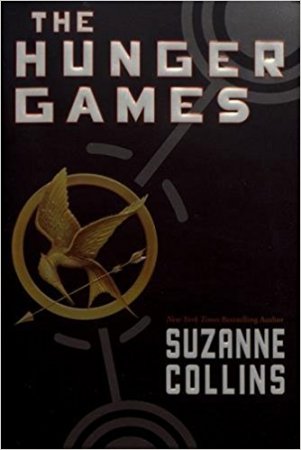 The Hunger Games
The Hunger Games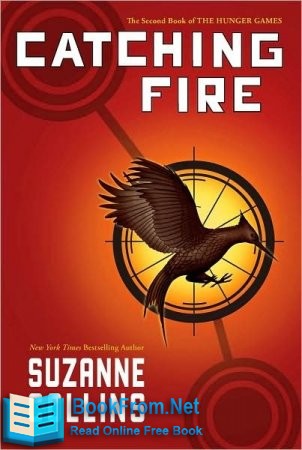 Catching Fire
Catching Fire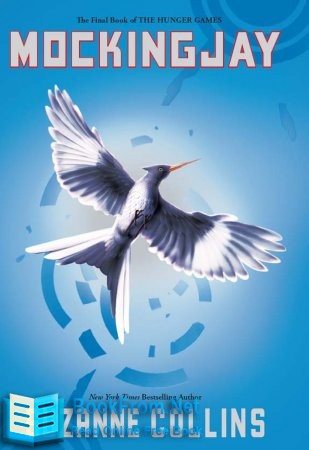 Mockingjay
Mockingjay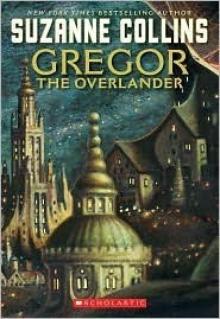 Gregor the Overlander
Gregor the Overlander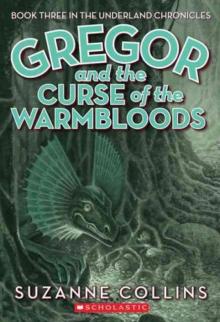 Gregor and the Curse of the Warmbloods
Gregor and the Curse of the Warmbloods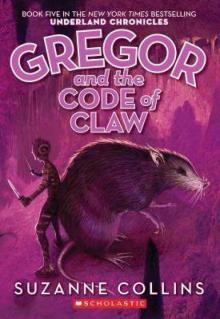 Gregor and the Code of Claw
Gregor and the Code of Claw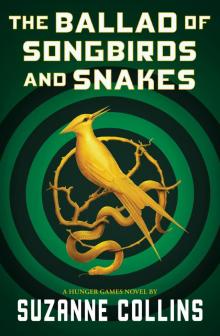 The Ballad of Songbirds and Snakes
The Ballad of Songbirds and Snakes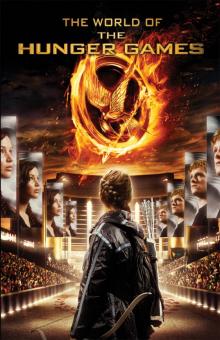 The World of the Hunger Games
The World of the Hunger Games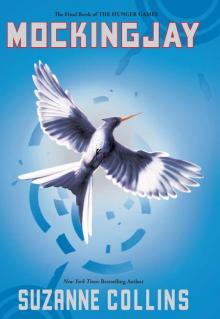 Mockingjay (The Final Book of The Hunger Games)
Mockingjay (The Final Book of The Hunger Games)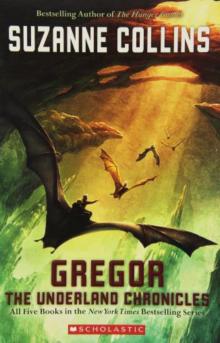 The Underland Chronicles: Books 1-5 Paperback Box Set
The Underland Chronicles: Books 1-5 Paperback Box Set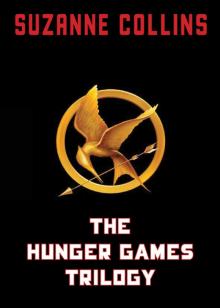 The Hunger Games Trilogy
The Hunger Games Trilogy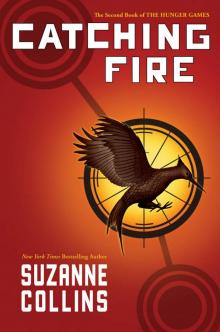 Hunger Games 02 - Catching Fire
Hunger Games 02 - Catching Fire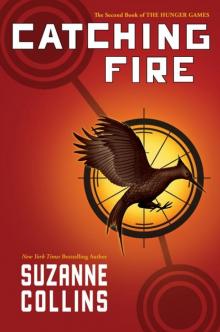 Cathing Fire thg-2
Cathing Fire thg-2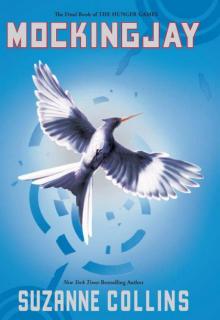 Hunger Games 03-Mockingjay
Hunger Games 03-Mockingjay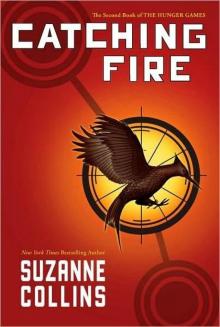 Hunger Games 2 - Catching Fire
Hunger Games 2 - Catching Fire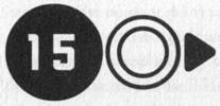 Hunger Games 01 - The Hunger Games
Hunger Games 01 - The Hunger Games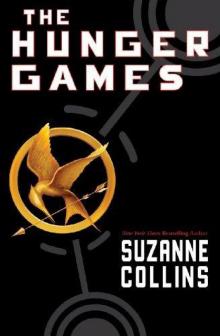 Hunger Games 01-The Hunger Games
Hunger Games 01-The Hunger Games